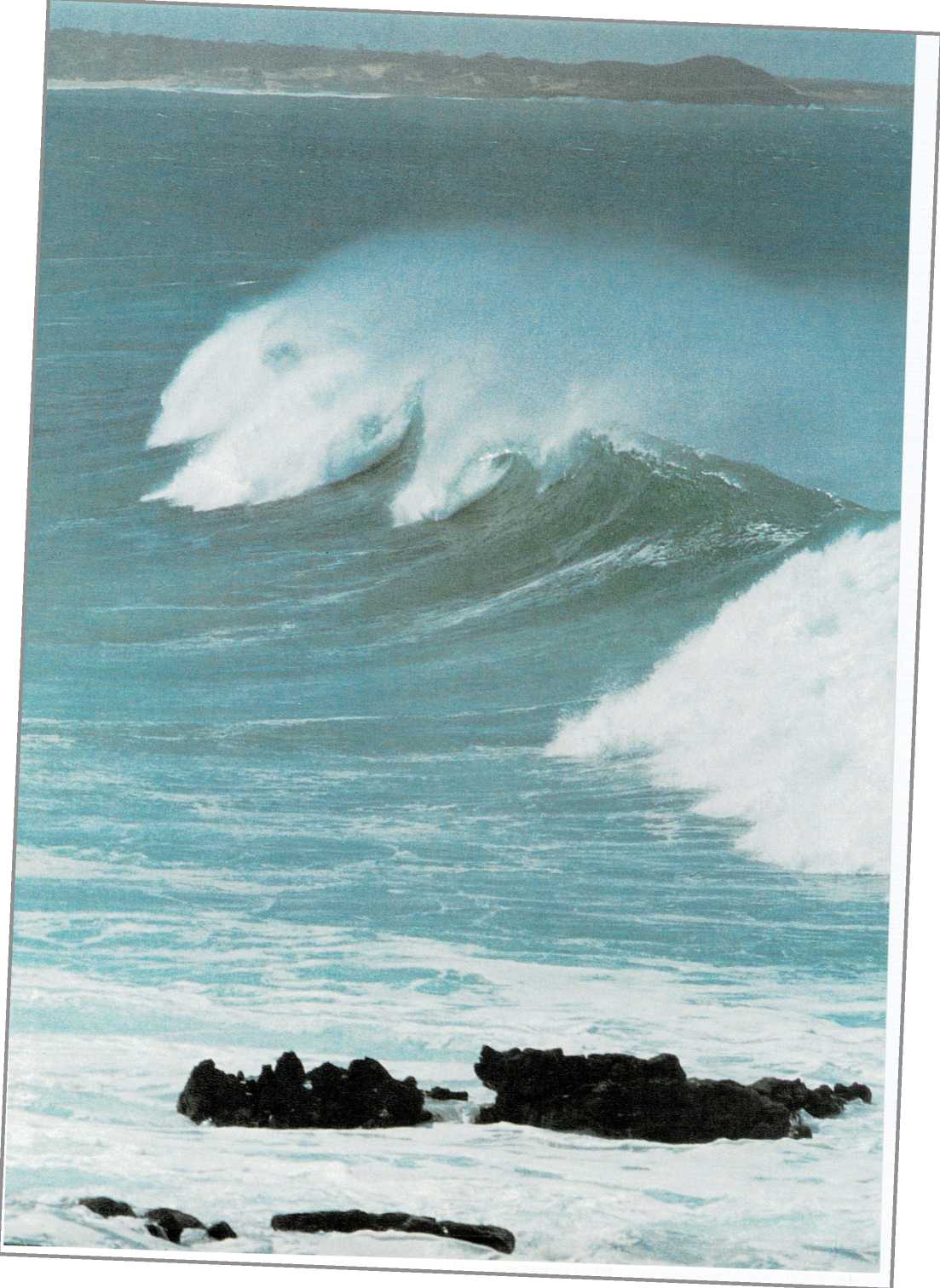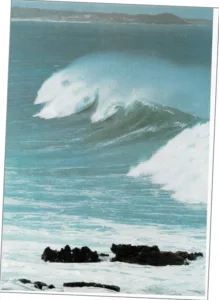
The bounding waves
Stand at the seashore, or a lakeside, on a windy day. Watch the waves
as they rush in toward you. They seem to come rolling at you as if
pushed by a giant hand. With a great hiss and a swirl of foam, they
surge up onto the beach. Then, almost at once, the water flows back
out again. Only a last few sparkles are left on the wet sand.Waves are made by wind bloving along the top of the water. The water
seems to be moving forward—but it really isn’t! It only moves up and
down. A cork floating- on the water would bob up and down as a wave
moved under it. Unless pushed by the wind or tide, it would stay in
the same place. This is because the water in a wave does not move
forward. Only the shape of the wave moves forward.You can see this for yourself. Tie a length of rope to a tree or post.
Then wiggle the loose end of the rope. You’ll see a wave shape travel
down the rope. But the rope stays in the same place.When a wave reaches land it “breaks.” The bottom of the wave drags on
the ground where the water is shallow. The top keeps going. It spills
up onto the beach, then slides back again.


